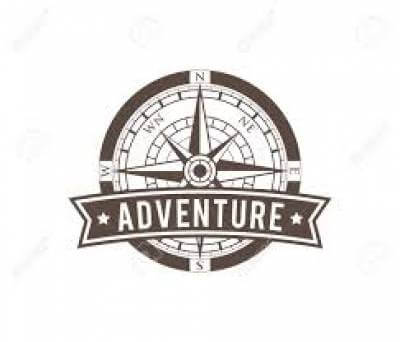Everest Base Camp Budget Trek
A world-famous trek to Everest Base Camp is on many people’s “Bucket List.” This is an adventure into the great Himalayan landscape. This 13 day Everest Base Camp Budget Trek (5364m) will follow in the footsteps of New Zealander Sir Edmund Hillary and Tenzing Norgay of Nepal to where they stood before their famous ascent of the world’s tallest mountain - Mt. Everest (8848m). This is your opportunity to remember this significant moment in history, as well as visiting the UNESCO and World Heritage Sagamartha National Park. Along the way, you will visit the renowned Tengboche Monastery where you can see this enormous peak, as well as other 8000m plus peaks, such as Lhotse (8516m) and Makalu (8463m). This trek takes you up to a well-known vantage point, Kala Patthar (5550m) which is the closest viewpoint of Mt. Everest and other colossal snow-capped Himalayan peaks. At EBC you can also see the Khumbu Glacier that slowly makes its way down the face of Everest.
You will trek through deep gorges, lush sub tropical forests and will traverse mountain trails in order to reach EBC. We have allowed plenty of time allowing you to acclimatize before ascending to higher elevations. Passing through a number of villages in the Khumbu region will give you a first-hand glimpse of what the villagers endure to survive in the Himalayan mountains, and also how their Tibetan Buddhist faith enriches their lives.
Along the trail you will be shocked at the close proximity of these snow-capped peaks. The sheer size of these mountains makes you feel small and insignificant. It feels like you can literally reach out and touch them! This region is also home to four of the tallest mountains in the world.
Your scenic flight into and out of Lukla will emphasize the extent of the Himalayan Mountains. On the return fight you will have a special appreciation of them, due to you having trekked through these mountains and valleys in order to reach EBC. This trek will appeal to nature-lovers and those who have always been in awe of seeing the world’s tallest peak, Mt. Everest (8848m) as it looms before you reaching to the clouds.
Sherpa Teams have more than 40 years been satisfying trekkers and climbers in the Himalayas. We have an excellent reputation and excel in making this a journey to be remembered with memories to last a lifetime.
ITINERARY
Day 1 : Arrival in Kathmandu (1,350m) & transfer to hotel.
Your adventure begins at Kathmandu. On arrival, a staff member from the Sherpa Teams will meet you at the airport and take you to your hotel. There will also be a briefing where you will have an opportunity to meet your guide and ask any questions you have about the trek. You will stay here overnight at a hotel in Thamel – the tourist hub of Kathmandu.
Day 2 : Fly from Kathmandu to Lukla (2850m) 40 minutes & trek to Phakding (2,650m) Duration: 4-5 hours.
Today we have an early start as we head to the airport for a 30 to a 40-minute scenic flight to Tenzing-Hilary Airport at Lukla. From here we follow the trail to Phakding, initially dropping 500 meters to the bank of the Dudh Koshi River. Along the trail you will pass several mani-walls and boulders engraved with Buddhist prayers, you will arrive at Phakding where you will spend the first night of your trek.
Day 3 : Trek from Phakding to Namche Bazaar (3,440m) Duration: 5-6 hours.
We have an easy day ahead of us as we cross several bridges over the Dudh Kosi River via the delightful villages of Toc-Toc, Benkar, and Monjo before arriving at the official entrance to Sagarmatha National Park where we will be asked for our permit. We will follow the trail along river flats and then cross a bridge before climbing a steep hill until we reach Namche Bazaar, a busy modern town with many modern facilities such as restaurants, hotels and internet cafes.
Day 4 : Acclimatization at Namche Bazaar Hike to Everest View Hotel; Duration 34-5 hours.
Today is a day to acclimatize, which is crucial before heading to higher altitudes. Health experts recommend being active during this time in order to better acclimatize. We have several options open to us. We can take a trek to Thame or visit Khunde, or we can use this time to walk around Namche Bazaar and check out the weekly market that takes place on Friday evening and on Saturday mornings. You can also visit the Tourist Visitor Center close to the headquarters of the Sagarmatha National Park that has a fascinating display of equipment and relics of the first Everest climbers. You will also learn about the flora and fauna of the region.
Day 5 : Trek from Namche Bazaar to Tengboche (3,860m) Duration: 5-6 hours.
Today we follow the rapid flowing Dudh Kosi River as its freezing waters gush down from the mountains. The trail also offers some stunning mountain views as we slowly climb higher to 3860m at Tengboche Village, renowned for its decorative wall hangings and 6 meter Buddha, Tibetan musical instruments, and vibrant Lama Robes. A highlight of visiting Tengboche will be the evening prayer at the monastery.
Day 6 : Trek from Tengboche to Dingboche (4,360m) Duration: 4-5 hours.
Today is an easy trek to Dingboche – except for the final leg where we have to climb a steep hill. We will pass through the villages of Somare (4010m) and Orsho and then come to a fork and take the left in the trail that takes us to Dingboche where we will stay the night.
Day 7 : Trek from Dingboche to Lobuche (4,930m) Duration: 5-6 hours.
We first head to Dughla Village and then we have to cross a steep moraine at the base of the Khumbu Glacier. We continue to head higher to Chupki Lhara that has an array of stones with prayer flags placed as a memorial to climbers Scott Fischer (American) and ten-time Everest summiteer Babu Chiri Sherpa (Nepalese guide) who died while attempting to climb Everest. As we head on the trail to the Khumbu Glacier moraine a number of huge peaks are visible: Khumbutse, Lingtren, Pumori, and Mahalangur Himal. We will stay in a lodge tonight.
Day 8 : Trek from Lobuche to Gorakshep (5160m) & to Everest Base Camp (5360m) – return to Gorakshep; Duration: 7-8 hours.
We head out today and then arrive at Gorak Shep Lake before heading on to a memorial that honors Indian mountaineers who have died while attempting to climb Everest. Walking now is more physically demanding as a result of the thinner air at this altitude. The trail has rocks, moraine, and streams to cross prior to reaching EBC. The first thing we notice on arrival at EBC is the contrasting array of colorful tents of mountaineers waiting for the right conditions before attempting a climb to the summit. From EBC we can clearly see Nuptse, Khumbutse, and Pumori and snow glistening on their peaks. After a rest and look around EBC we head back to Gorakshep for the night.
Day 9 : Hike to Kalapatthar (5,5550m) and trek to Pangboche (3,900) Duration: 7-8 hours.
We head out in the pre-dawn darkness, with temperatures around -10 to -14C, and head to Kala Patthar. There is also the likelihood of strong winds that will add the cold. In the east are the peaks of Lingtren, Khumbutse, and Changtse. Everest also starts to appear. Upon reaching the summit of Kala Patthar we will be ecstatic as we take in the 360-degree views and the immense Mt. Everest right in front of you. We will then head back to Pheriche for the night.
Day 10 : Trek to Namche bazar (3,440m) Duration: 6-7 hours.
Today we head down to the river and pass through a rhododendron forest. Along the trail, you will see a number of peaks, including Everest, Kwangde, Tawache, Nuptse, Lhotse, Ama Dablam, Kantega and Thamserku. We will stay overnight at Namche Bazaar.
Day 11 : Trek from Namche Bazaar back to Lukla (2,860m) Duration: 6-7 hours.
Today we head back to Phakding on our final day of trekking. We will arrive at Lukla with time to spare, allowing you to explore the village and surrounding countryside. You will have time to look back on this fantastic journey and go over your photos and catch up on emails.
Day 12 : Fly from Lukla to Kathmandu (1,300m) Duration: 30 minutes flight.
Today we fly back to Kathmandu. After arriving back at Kathmandu there will be time to do some last-minute shopping for souvenirs or to wander around Thamel. You may also be inclined to have a drink or two to celebrate the completion of this fantastic journey into the Himalayas.
SERVICES
Cost Included In Your Package
- Airport transfer on arrival and departure by private vehicles
- Two night’s standard twin sharing Hotel in Kathmandu with breakfast.
- One highly experienced Sherpa Teams’s government-licensed, English-speaking local guide covering meals, flight, insurance, accommodations, and equipment for the guide.
- Strong, helpful Sherpa porters with proper safety equipment and walking equipment, his salary, food, accommodation, and insurance (one porter for two people).
- All the necessary documents such as Sagarmatha national park Fees and TIMS card (Trekking Information Management System)
- Trekking lodges or tea houses during the trek (Standard)
- An assistant guide for the group of 8 pax or above
- Use of sleeping bag, down jacket, duffel bag and walking poles (if you don’t have your own, to be returned after trip completed).
- Round trip flight from Kathmandu – Lukla - Kathmandu including applicable departure taxes
- Sherpa Teams' Certificate of appreciations after the successful trek
- Sherpa Teams’s complimentary free hiking T-shirt.
- Oximeter to measure your oxygen and Pulse level during the trek in the mountain, it’s very useful for all the trekkers to be aware of the high altitude sickness.
- Emergency rescue operation assistance in arranging in case of complex health conditions (funded by your Travel Insurance)
- All government, Local taxes, and official Expenses
Cost Excludes
- Nepal entry visa fee (easy to obtain the visa on arrival at Tribhuvan International Airport – Kathmandu). $30 USD for 15-day, $50 USD for 30 Days, and $125 USD for 90 Days visa.
- Three meals a day (Breakfast, Lunch, and Dinner, the main course) during the trek.
- Extra nights accommodation and meals before and after the trek
- International airfare
- Personal expenses such as shopping, hot and cold drinks, hot shower, hard and soft alcohols, snacks, hot and cold water, Wi-Fi, battery re-charge fee, and extra porter
- Travel insurance - insurance has to cover emergency high-altitude rescue and evacuation
- Personal cloths and trekking equipment
- Additional cost, the itinerary modifications or delay caused by out of management control due to the weather condition, illness, change of government policies, strikes, and physical condition, etc.
- Gratitudes to the guides and staffs (Recommended by Nepali culture )
- Any other expenses that are not mentioned in the Price "inclusive section" of this program
- NOTE: If you return earlier from the trek due to sickness or any problem, the money you paid for the flight, hotel, mountain room, food, etc. is nonrefundable, and you will need to bear the expenses for the hotel, food, etc. in Kathmandu yourself.
EQUIPMENTS
The following information will give you some idea about what you need to bring for the trek. It is important you do not forget the essential items, as this will determine your comfort and safety on the trek. Equally important is that you do not burden yourself with unnecessary equipment on the trek.
- Sleeping Bag (Sherpa Teams will provide but need to return after completing the trip)
- Duffel Bag (Sherpa Teams will provide but need to return after completing the trip)
- Fleece jacket or pullover
- Waterproof windbreaker or windcheater
- Thermal underclothes
- Rain poncho
- Down jacket (Sherpa Teams will provide but need to return after completing the trip)
- Fleece or wool trousers
- Sun hat or scarf
- Trekking pants (two pairs)
- Mittens or woolen gloves
- Hiking socks (several pairs)
- Moisture-wicking shirts, including t-shirts
- Trekking shoes or boots with spare laces
- Flip-flops or sandals for relaxing in the evenings
- Underwear (several pairs)
- Swimsuit or swimming costume
- Sunglasses
- Headlamp or flashlight/torch
- Sleeping bag (Sherpa Teams can provide this for you)
- Trekking poles (if desired)
- Hiking backpack with a capacity of at least 40 liters
- Small lock for your backpack
- Reusable water bottles (at least two liters)
- Water purification tablets or filtration device
- Wash towel
- Basic first aid kit
Toiletries (tissues, toilet paper, moisturizer, lip balm, sunscreen, sanitary pads, hand sanitizer, nail clippers, a small mirror, toothbrush, toothpaste, glasses, contacts, etc.)
GOOD TO KNOW
Accommodation
You will be accommodated in 3-star hotels in Kathmandu. During the trek, we will be staying at lodges/ teahouses. You may find comfort and better quality teahouses - having attached bathroom - until Namche which is a thriving town seeing many more tourists and a greater range of accommodation. It should be noted that at higher elevations the quality of accommodation may not be as good, with more basic rooms with the bare necessities.
Meals during the trek
In Kathmandu, your hotel includes breakfast, whereas all meals (breakfast, lunch, and dinner) will be not provided during the trek. A staple food of the Khumbu region is potatoes, oats, buckwheat, Sherpa stew, and Tibetan bread. Sherpas started farming potatoes when the first seeds were introduced to the region in the early 90s. There is a limited choice of food at higher elevations and except many potato dishes. Potatoes are high in carbohydrates – an excellent source of energy needed at high altitudes.
Transportation
We use a private car for sightseeing and for the airport to hotel pick and drop off. We do not have to use public transportation or local buses during the trek. Our only flights are from Kathmandu to Lukla and return.
Physical fitness
EBC is a challenging trek where you often have to walk 6-7 hours a day. You don’t need past experience of hiking or trekking but if you have done any kind of trekking activities then it is always a plus!. We have met people from all walks of life, shapes and sizes who have completed the trek. The only difficult part is when altitude sickness strikes and the effect that it can have on your body. Before leaving for Nepal it is good if you can prepare yourself physically by increasing your stamina and oxygen intake.
Remember – The better prepared – the more enjoyable your trek!
MAP
PHOTOS/Videos
Departures
Select a departure month
Fill out the form below and a Travel Expert will reach out to create your perfect tour.
FAQS
I have never hike before, can I make it to Everest Base Camp?
Yes, you can. No matter who you are, as long as you are reasonably fit, can walk for 5-6 hours a day and trek/hike a few uphills, Sherpa Expedition and Trekking Trekking team will support you to the fullest to transform your dream of standing at Everest Base Camp into reality.
What is the best Season for trek to Everest Base Camp?
The month of March to May in Spring and September to December in autumn seasons are considered the best for the Everest Base Camp Trek as the weather conditions become favorable during this time, providing you with good visibility and a suitable atmosphere for Everest Base Camp trekking.
Is there an age limit for Everest Base Camp trekking?
No, there is no age limit for the trek to Everest Base Camp but, you need to be in good physical shape and have a positive attitude. We also suggest you to prior to the excursion though we suggest you to please see your doctor and obtain necessary permission and advice, as well as medications for traveling in extreme altitude prior to the excursion.
What are the meals on the Everest Base Camp trekking like?
During trekking, you will be served meals in the teahouses. Typical meals are noodles, rice, pasta or potato dishes along with vegetables and egg/chicken/meat dishes. Other items mostly served as breakfasts include Tibetan, egg, pancake, bread, porridge, muesli, and toasts with peanut butter and honey.
What kind of accommodation will be provided during the Everest Base Camp trekking?
A teahouse trekking accommodation will be made for you for the Everest Base Camp trekking whereby you will be able to stay at tea house(Local lodge) and have wholesome food and net and clean comfortable bed throughout your trekking journey. This form of arrangement also allows you to carry less baggage; you can trek at your own pace and enjoy the Everest panorama on your own schedule. It is also an eco-friendly way of trekking whereby trekkers can have more contact with the local's sherpa peoples.
Are there toilet facilities at the tea houses? What opportunities will I have for shower during trekking?
Most of the teahouses on the Everest Base camp trail have squat toilet facilities but recently built lodges have western-style toilets as well. Nowadays, flush toilets are also being introduced with number of increasing foreign mountaineers each year. It is highly recommended to carry your own toilet paper and other required toiletries. Hot shower facilities are available till Gorakshep. The most common type is a bucket shower, usual buckets with tap filled with hot water and placed in a shower room. Hot shower costs from US$ 4 to 15 per use and the price increases along with the elevation. Attached bathrooms and toilets are not available unless you book for a luxury lodge during the EBC trek.
What kind of clothes do we require for the trekking and is it possible to purchase it in Kathmandu before the start of the trip?
What you want to wear depends on you but we suggest you wear warm clothes during the Everest Base Camp trekking. A down jacket, thermal longs and top, comfortable trekking trousers, t-shirts, fleece, windproof jacket, hat, scarf, and gloves might be useful. There are numerous trekking shops in the Thamel area of Kathmandu where you can get all of these items in both local and branded stores alike. Sherpa Expedition and Trekking may also accompany and assist you if required.
Do I need to bring any bags for trekking? If yes, what kind?
During the Everest Base Camp trekking, you will be on a long journey for which you will need two bags to keep your belongings. A rucksack/duffle bag and a day bag for personal items. Sherpa Expedition and Trekking will provide you with a duffle bag (which is need to refund after the trek) that you can use throughout your entire journey and even afterward. These bags are durable and hence perfect for any kind of trekking journey. While the duffle bag will be carried by the potters, you will have to carry a day bag on your own. A day bag is a small backpack that has enough room for everything you will need on a day hike such as lunch, water, extra clothing and perhaps a few personnel items like camera, battery chargers, etc.
Do I need to bring any personal equipment like sleeping bags, down jackets, Trekking poles etc?
If possible, we suggest you bring your own equipment. However, sleeping bags and down jackets will be provided to you by Sherpa Expedition and Trekking. With regards to trekking poles, if you are used to walking with it then take them with you, as you will probably find them useful especially on the way down. They are not essential though and the walk is manageable without them. It is mostly a personal preference. If you prefer to take the trekking poles with you on the trekking then you can either bring your own pole or buy it from numerous options available in Kathmandu itself.
Is it possible for me to store extra clothing that I will not need?
Yes, if you have a bag of extra clothing for when you return from the trekking, you will be able to store it safely in Kathmandu Sherpa Expedition and Trekking office. The storage facility is provided by most hotels and lodges in Kathmandu or you can also store it in our office for the duration of the trekking.
What problems can arise on high altitude?
Our itinerary has been specially tailored to prevent any kind of AMS (Acute Mountain Sickness) while moving up to higher altitudes. Normally, altitude sickness starts from 3,600 meters and above. You will be trekking at a relatively slow and gradual pace as part of the acclimatization process. Cut off caffeinated, alcoholic and smoking items. Drink at least 4 liters of water a day. Trek slow. Don't skip the acclimatization days. Better to continue with Diamox (if any symptoms show up). Drink Garlic Soup. In the higher elevation, there is less oxygen in the air and this is more so while crossing high passes. Our expert guides will advise you on how to avoid AMS and treat it when/ if required.
Do I need insurance for Everest Base Camp trekking?
Make sure to have both medical and evacuation insurance before coming to Nepal for Everest Base Camp trekking. You should be careful in choosing a policy while traveling to a Himalayan country like Nepal as some insurance companies may make special exceptions for adventure travel. If you are confused about the insurance, please inform us and we will help you. It is usually better to arrange your insurance in your country before travel.
How long do I need to walk per day during my trek to Everest Base Camp?
The trekking will be 5-7 hours a day depending upon the landscape and destination.
How long will it take to reach Everest Base Camp?
It takes 6 to 14 days to reach Base Camp depending upon the mode of transportation and packages of Sherpa Expedition and Trekking offers.
How safe is Everest Base Camp trekking?
We at Sherpa Expedition and Trekking Team always have the safety, comfort, and satisfaction of our valued customers as our foremost priority at all times, and we assure you a wonderful and unforgettable time with us in our beautiful country. Sherpa team members of Sherpa Expedition and Trekking will be carrying all the necessary gear, equipment, and first aid kits and they have extensive first aid training. If a trekker falls sick on high altitude, the leader will decide whether to continue the trek. In case of emergency, Sherpa Expedition and Trekking have a rescue helicopter to bring you back from the higher elevation. Moreover, Sherpa Expedition and Trekking also provides oximeter to monitor the oxygen level at high altitude and offers regular health check-up facilities.
What are the mode of transportation?
You can either trek on foot or by a helicopter. Sherpa Expedition and Trekking offer exciting and reasonable Helicopter trek to Everest Base Camp for 5 days and 10 days. Sherpa Expedition and Trekking can also customize your tour as per your necessity
What if my flight to and from Lukla is cancelled or delayed?
The flights are usually regular between September and May. But due to high altitude, bad weather and unforeseen technical issues, you may experience a delay or cancellation of the flight. On the occurrence of such events, Sherpa Expedition and Trekking charter a helicopter to make sure you are on the safe schedule either for a trek or for your flight back home which would cost extra charge as an unexpected event. However, if the visibility is less than 1,500 meters, it is unable to operate helicopter facilities and Sherpa Expedition and Trekking will reschedule the flight.
What is the luggage limit for porter and flight to Lukla?
Sherpa Expedition and Trekking will provide one porter for two trekkers to carry 20 kgs of luggage (maximum 10 kg for each trekker). Please be sure your porters are not overloaded because they do not carry only your equipment but also lift your spirit to reach new heights, and your love, affection, and generosity can be the reason for them to work hard to take you to your destination. However, the weight limit on flights to the Everest region, basically to Lukla is a total of 10 kgs and you need to pay an extra amount per kg for the excess baggage. Sherpa Expedition and Trekking pays up to 5 kgs of extra baggage making your total to 15 kgs with your hand bag.
What types of liquid do I need to drink at high altitude?
Garlic soup is a must while trekking. Sherpa Expedition and Trekking recommend trekkers to drink green tea, lemon tea, hot lemon ginger tea and drink at least 2-4 liters of water a day. However, it is better to avoid alcohol and alcoholic beverages, caffeinated items, and hot-chocolates at high altitude.
I am a vegetarian. Am I supposed to get enough meal on my trek?
Sherpa Expedition and Trekking Trekking won’t recommend non-veg items because the meat in such places may not hygienic and healthy. Sherpa Expedition and Trekking also encourage to avoid dairy and cheesy items and strongly suggest not to consume them during the trek. So, our packages are suitable for both vegan and vegetarians.
Do I need to tip my porter and guide?
Your guide and porters are a big reason why you got a chance to feel something very few can have. Apart from guiding and carrying your necessities and being mindful of your safety, they want to see you happily succeeded more than anyone like family and help you successfully complete the trek safely. So, your tips reflect gratitude towards them. So, tipping is a recommended culture for porters and guide in Nepal as a gesture of thankfulness.
Can I buy the gear in Nepal and sell it afterwards?
Sherpa Expedition and Trekking will introduce dozens of shops selling knock-off gear in Kathmandu. You can also barter those gears at the knock-off places but be sure you keep the receipt safely. Moreover, you can rent the needed gears if you do not want to buy them.
Is there Wi-Fi on the trek?
Yes, most guesthouses offer Wi-Fi, for a small charge. it cost USD$5 per day.
Are there ATMs available during the Everest Base Camp trekking?
ATM services are available only in Namche Bazaar and Lukla. However, the services might not work or run out of cash. Therefore, we suggest you carry a small amount of money to buy snacks, etc during the trekking.
Will I be able to charge my batteries during trekking in the Everest Base camp?
Most of the tea houses/ lodges have electricity whereby you will be able to charge your iPod or camera batteries. Please note that lodges/tea houses will charge you some extra money for the services. The fee may vary from 1 USD to 3 USD per hour.
Latest Traveller’s Reviews
Travel experiences of our clients who recently returned from their trips.
100%
Based On 13 Reviews
Rebecca Benedetti
France
July 12, 2024
Remarkable Service and Support
Sherpa Expedition & Trekking delivered remarkable service and support during our Everest Base Camp trek. The team’s professionalism was evident in their careful planning and execution of every aspect of the trek. The guides were highly skilled and provided valuable support, ensuring we were well-prepared for the altitude and terrain. Their friendly and supportive approach made the trek more enjoyable, and their dedication to our safety was clear throughout. This company’s exceptional service and commitment make them a top choice for anyone planning this iconic trek.
Haya Khan
Canada
May 21, 2024
Expert Guides and Flawless Execution
Our trek to Everest Base Camp with Sherpa Expedition & Trekking was a testament to their expertise and flawless execution. The guides were experienced and provided insightful support, helping us navigate both the physical and logistical challenges of the trek. Their detailed planning ensured that everything went smoothly, from securing permits to arranging accommodations. Their focus on safety and comfort was evident throughout the journey, making the trek both enjoyable and rewarding. Sherpa Expedition & Trekking is highly recommended for their exceptional service and expertise.
Amos Amos
Netherlands
April 23, 2024
Excellent Trekking Experience with Sherpas
Sherpa Expedition & Trekking offered an excellent trekking experience on our Everest Base Camp journey. The team was well-organized, ensuring that all logistics were handled smoothly. The guides were incredibly knowledgeable and supportive, providing helpful advice on navigating the trek and managing altitude. Their attention to detail and care for our needs enhanced the overall experience. The trek was both challenging and enjoyable, thanks to their excellent service and commitment to our safety. Highly recommended for a well-executed and memorable trek.
People Considering This Package Right Now Check availability


























